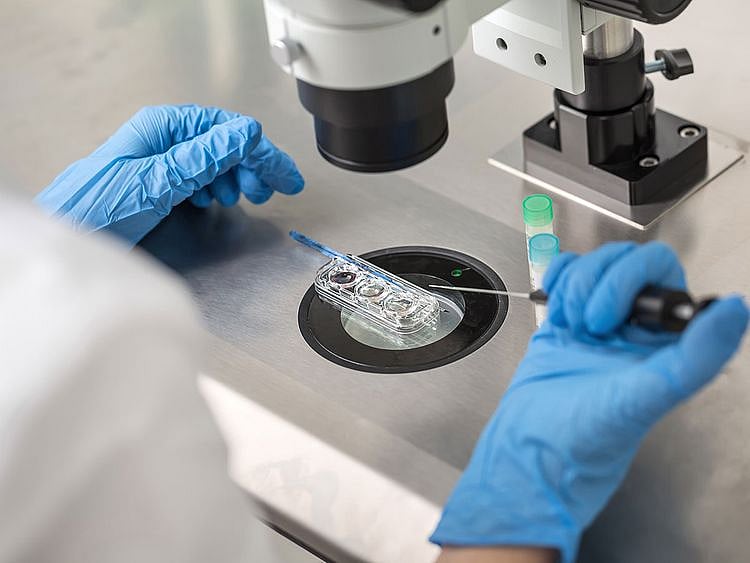Professor K.V. Lakshmi feared her potentially groundbreaking research was in danger in September 2020 when a super-cold freezer at the Rensselaer Polytechnic Institute in Troy, N.Y., went on the fritz. But she and her team took measures to protect their specimens until a repair crew could come a week later.
A lock box was placed around the outlet supplying power to the freezer. And a sign was put on its door in all caps, notifying janitors they didn’t need to clean, giving anyone annoyed by the freezer’s beeping instructions on how to shut it off and pleading with everyone, “PLEASE DO NOT MOVE OR UNPLUG IT.”
Four days after the freezer started beeping, Lakshmi and her team came to the lab to find that someone had shut off power to the machine, destroying decades’ worth of research materials valued at nearly $1 million, according to a recently filed lawsuit.
Nearly three years later, the university is suing Daigle Cleaning Systems, accusing the cleaning company it had recently hired of negligence and breaching its contract. In a lawsuit filed June 16 in New York Supreme Court in Rensselaer County, the lawyer representing the university, Michael Ginsberg, said Daigle failed to properly train a janitor who, after hearing the freezer’s “annoying alarms,” used the lab’s circuit breaker to cut its power. School officials are seeking at least $1 million, which they estimate is the cost of reproducing Lakshmi’s research on photosynthesis that had “the potential to be groundbreaking” for solar technology.
“An ounce of prevention in the employee’s training would have gone a long way here,” Ginsberg told The Washington Post.
Daigle did not immediately respond Monday to a request for comment.
In August 2020, the Rensselaer Polytechnic Institute, one of the oldest engineering schools in the country, contracted with Albany-based Daigle to provide janitorial services for the academic semester stretching into late November.
On Sept. 14, 2020, an alarm sounded in the laboratory where Lakshmi kept her research. The temperature of a freezer with cell cultures and specimens, which needed to stay between minus-115.6 and minus-108.4 degrees Fahrenheit to prevent “catastrophic damage,” had risen to the upper limit.
Lakshmi determined the cell cultures and samples would be fine so long as the temperature held. She contacted the freezer manufacturer to schedule an emergency service, but because of pandemic restrictions, no one could come to fix it until Sept. 21.
Lakshmi investigated several possible causes for the temperature shift by questioning university facilities officials, who told her temperature and air flow in the lab generally weren’t endangering her specimens. To try to ensure electricity kept flowing to the freezer, a lock box was installed on its outlet to prevent anyone from unplugging it. A sign was posted on the door, stating that the freezer was under repair and shouldn’t be moved or unplugged. The sign provided instructions on how to stop the freezer from beeping.
On Sept. 17, a Daigle janitor came to clean the lab, the suit states. While doing so, he heard “annoying alarms” throughout the evening, it adds. While working, he allegedly turned off the circuit breaker supplying electricity to the freezer, causing it to rise to minus-25.6 degrees, far above the limit necessary to preserve Lakshmi’s specimens.
The next day, Lakshmi’s team discovered the freezer was off and the temperature inside had risen “to the point of destruction.” Despite efforts to save them, “a majority of specimens were compromised, destroyed, and rendered unsalvageable demolishing more than twenty (20) years of research.”
During an interview with the university officials, the janitor admitted that he heard the alarms, thought “important breakers were turned off,” grew concerned and turned them on. But he misread the panel and did the opposite of what he intended, the suit alleges.
“At the end of the interview, he still did not appear to believe he had done anything wrong,” the suit states, “but was just trying to help.”
Sign up for the Daily Briefing
Get the latest news and updates straight to your inbox
Network Links
GN StoreDownload our app
© Al Nisr Publishing LLC 2025. All rights reserved.
